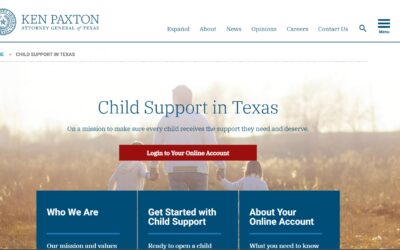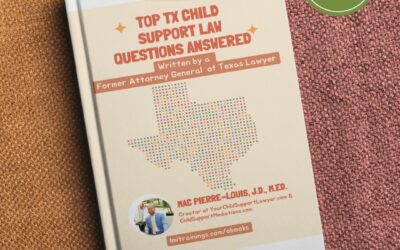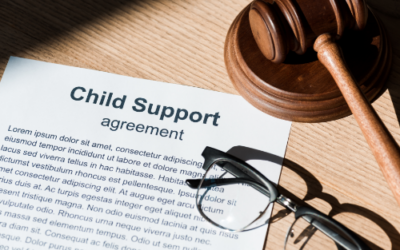SHE SAID IT WAS A GIFT. HE SAYS IT WAS FOR CHILD SUPPORT!
 John and Jane Doe, imaginary separated parents, are sitting in a child support office with a caseworker negotiating a new child support order. They make it through the topics of custody, visitation, and even ongoing child support without a hitch. They arrive at the issue of back child support (owed from dad to mom since separation), and things get dicey.
John and Jane Doe, imaginary separated parents, are sitting in a child support office with a caseworker negotiating a new child support order. They make it through the topics of custody, visitation, and even ongoing child support without a hitch. They arrive at the issue of back child support (owed from dad to mom since separation), and things get dicey.John: “I’ve helped take care of my daughter.”
Jane: “No you did not.”
John: “What about the $1000 I gave you two months ago when we split?”
Jane: “You know that was a gift.”
Caseworker: “John, do you have check copies, receipts, or bank statements, recording this $1000 transaction or what the $1000 was intended for?”
John: “No, I gave her cash to help take care of our child. I want my credit and should not owe back child support for those months. I didn’t know I needed to keep paperwork to show that I’m helping to take care of my own child!!!”
Jane: “I say again, it was a gift! And he knows it’s true because he gave me the money on my birthday!!”
Silence
John: “It was a coincidence that day was your birthday, I want my credit!”
What to do? Is he right, was it child support money for which he deserves credit? Or is she right, was it merely a gift, making him still liable for a back child support debt for those several months since separation?
The above scenario is more common than one might think, occurring in child support offices, attorneys’ offices, and courts weekly throughout the nation. Should John bear the burden to prove whether he gets credit for the $1000 he argues was for child support? Is any money he might have given to Jane on her birthday, which was not specifically recorded as child support, automatically deemed a gift to Jane? He said-she said type of support cases like John versus Jane will often come down to who has the best documentation or records to prove their position.
In the above scenario, John probably has the burden to prove the money he gave Jane was for child support. It’s probably his burden to show he does not owe back child support. He likely has the burden to show he did not give Jane the cash to spend on herself for her birthday, but on their child. If he does not meet his burden, he will lose. If this burden on John seems unfair to you, note that John could have easily flipped the burden to Jane by simply paying by check and writing on the check memo line, “For child support.” John’s naive belief that Jane would admit receiving the $1000 for child support does not lift his burden. John should just have kept better records. Fortunately, John probably still has his due process right to trial before a judge. However, this right, if exercised, again does not lift his burden, it only shows he now has an official who can possibly rule in his favor after that official listens to both parents’ testimonies and reviews their evidence.
Takeaway: Parents who do not yet have a child support order should proactively protect their rights and avoid the above scenario by following these tips:
- Both parents should keep records of direct payments.
- A non-custodial parent (NCP) should pay with checks or money orders rather than cash.
- An NCP should notate on a payment check the check’s purpose, such as, “For Little Johnny’s child support, May 2014.”
- An NCP who gives items like diapers should keep receipts and possibly even take time-stamped photos of contributed items.
- Both parents should work quickly to obtain a child support order, either through the state child support office or via a private attorney.
- Upon obtaining an order, an NCP should commit to only paying via his state’s disbursement unit for proper crediting.
Parents like John and Jane are smart to maintain good private child support records early in the process because such records will determine who has the burden of proof and whether the burden can be met.
The above is for informational purposes only and does not constitute legal advice nor does it create an attorney-client relationship between the writer and reader. It is prudent to speak with an attorney before making any major legal decision.





